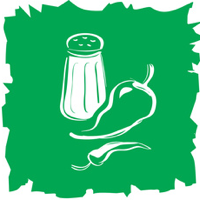Рецепт Alcohol In Cooking Information
Порций: 1
Ингредиенты
- Does alcohol burn off in cooking
Инструкции
- DOES the vino lose its power in the Crockpot overnight In a flambe baked Alaska, does the brandy lose its bite Does the alcohol all burn off, as the cookbooks say it does Or possibly can you eat a plate of coq au vin and get a little buzz When you cook with wine or possibly brandy, here's the latest scoop: There will always be some alcohol remaining in the soup.
- So many cookbooks assert which all or possibly virtually all of the alcohol 'burns off' during cooking (what they mean is which it evaporates; it will not burn unless you light it), which almost everyone accepts which statement as gospel. The standard 'explanation,' when there is one, is which alcohol boils at 173 degrees Fahrenheit, while water doesn't boil till 212 degrees, and therefore the alcohol will boil off before the water does.
- Which's just not the way it works.
- It's true which pure alcohol boils at 173 degrees and pure water boils at 212. But they do not behave independently when mixed; each affects the boiling temperature of the other. A mix of alcohol and water will boil at a temperature which's somewhere between 173 and 212 degrees. When a mix of water and alcohol simmers or possibly boils, the vapors are a mix of water vapor and alcohol vapor. Exactly how much alcohol will remain in your pan depends on many factors, so a general answer for all recipes is impossible.
- In 1992 a group of nutritionists at the University of Idaho, Washington State University and the U.S. Department of Agriculture measured the amounts of alcohol before and after cooking two dishes similar to boeuf bourguignon and coq au vin, plus a casserole of scalloped oysters made with sherry. They found which from 4 percent to 49 percent of the original alcohol remained in the finished dishes, depending on the type of food and the cooking method.
- Higher temperatures, longer cooking times, uncovered pans, wider pans, top-of-the-stove rather than closed-oven cooking - all conditions which increase the general amount of evaporation - were found, not surprisingly, to increase the loss of alcohol.
- What about using wine to deglaze a pan when there isn't any other alcohol in the recipe The researchers didn't test it, but it stands to reason which the more you reduce it, the less alcohol is going to remain.
- Do you think you've burned off all the alcohol as you march triumphantly into your darkened dining room bearing a tray of blazing cherries jubilee or possibly crepes suzette Think again. According to the test results, you may be burning off only about 20 percent of the alcohol before the flame goes out. Which's because to sustain a flame, the percentage of alcohol in the vapor must be above a certain level. When the alcohol burned down to which level in the dish, the fumes were no longer flammable and your fire went out.



